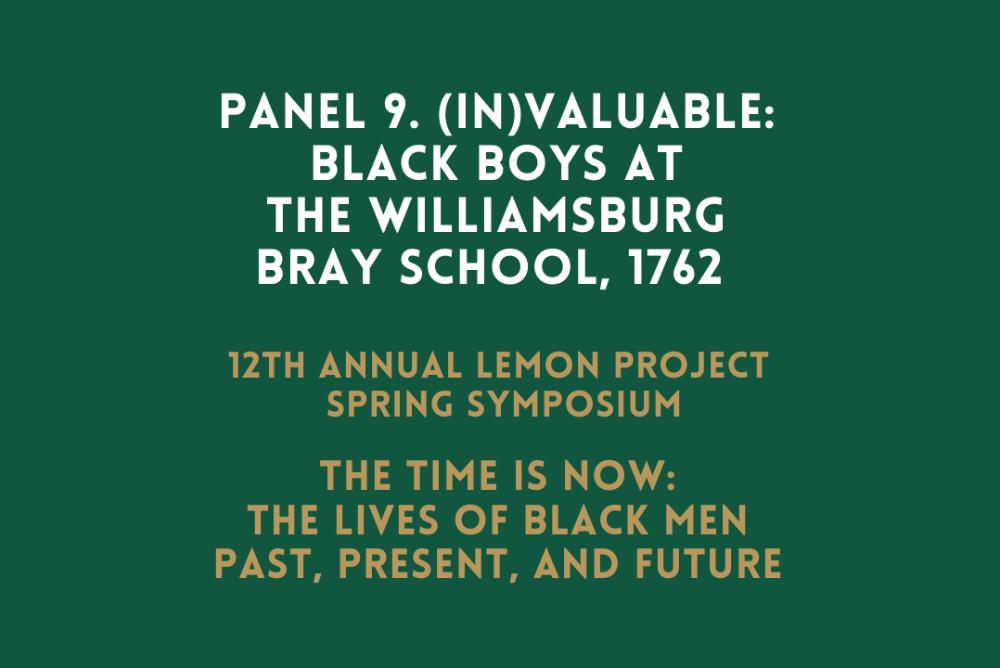Diversity & Inclusion Events
[PAST EVENT] Lemon Project Symposium Panel 9. (In)Valuable: Black Boys at the Williamsburg Bray School, 1762
Location
School of Education, In person at Dogwood or virtually over Zoom301 Monticello Ave
Williamsburg, VA 23185Map this location
Access & Features
- Free food
- Open to the public
- Registration/RSVP

Panel 9. (In)Valuable: Black Boys at the Williamsburg Bray School, 1762
12th Annual Lemon Project Spring Symposium
To join us in person, please register here.
To join us virtually, please register here.
Moderator: Dr. Jajuan Johnson, William & Mary
Dr. Maureen Elgersman Lee, William & Mary
Nicole Brown, Colonial Williamsburg Foundation/ William & Mary
Adam Canaday, Colonial Williamsburg Foundation
On September 30, 1762, Rev. William Yates and Robert Carter Nicholas penned a letter to Rev. John Waring in London, providing an accounting of “the Negro Children now at the School under our Direction in this City.” Yates and Nicholas were trustees of the Williamsburg Bray School and Waring belonged to The Associates of Dr. Bray, the school’s founding organization and primary benefactor. Currently the school’s earliest known student list, the 1762 document is a window on the lives of the thirty students who were instructed in reading, writing, sewing, etiquette, and Anglican doctrines by their teacher, Ann Wager. While all but three of the students enrolled that September were enslaved, the ratio of boys to girls was essentially equal. Our panel will look specifically at the Black boys on this 1762 list and delve into their lives, unpacking their trajectory into manhood and the many meanings of value laden in that journey. The panelists will explore the following questions as they relate to the symposium at large:
1. What do we know about the boys who attended the Williamsburg Bray School in 1762?
2. What was the value proposition of their attendance for their owners and their families?
3. How might this proposition have come into conflict with the boys’ perceptions of themselves as they became men?
Contact
[[setho2, Sarah Thomas]]
